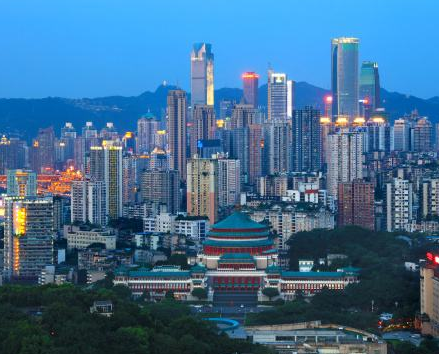CHONGQING, Jan. 27 (Xinhua) -- Southwest China's Chongqing Municipality set its economic growth target for 2019 at a moderate rate of 6 percent, as it makes plans to foster high-quality growth.
Chongqing's GDP growth slowed to 6 percent in 2018 as traditional pillar industries like auto-making, electronics, engineering, pharmaceutical and energy sectors lost steam. Its GDP was 2.04 trillion yuan (299 billion U.S. dollars) in 2018, according to the municipal statistics bureau.
Chongqing faced increasing downward pressure in economic growth last year, and its growth was slower than expected, mayor Tang Liangzhi said in the government work report at the annual session of the municipal people's congress on Sunday.
Tang said the decline of China's auto market in 2018 dealt a heavy blow to the auto industry in Chongqing, home to Chinese automaker Chang'an Auto.
China's passenger vehicles sales totaled 22.35 million in 2018, down 5.8 percent year on year, the first negative growth for the market in 28 years.
"The traditional sectors are in urgent need of upgrading, while new industries are not yet strong enough," Tang said.
He said the 6-percent target for 2019 leaves enough room for deepening supply-side reform and advancing high-quality growth.
He highlighted the role of the private economy and innovation-driven strategy in this year's economic work. The government will promote the use of intelligent technologies in 1,250 companies this year. By the end of 2018, Chongqing has 10,912 technology-related companies.
The city is tapping into big data, artificial intelligence, driverless vehicles, the 5G network and smart hardware for new growth.
It plans to build what it calls a "science city" in the western part of the city to pool resources for innovation. The project will gather 14 universities and 55 key labs, according to the plan.
"Chongqing will adhere to high standards in building the science city and make it a center for innovation in western China," Tang said.
The sprawling metropolis along the Yangtze River, home to 32 million people, was one of China's fastest growing cities. Its economy was on a 15-year streak of double-digit growth before 2017.




 A single purchase
A single purchase









